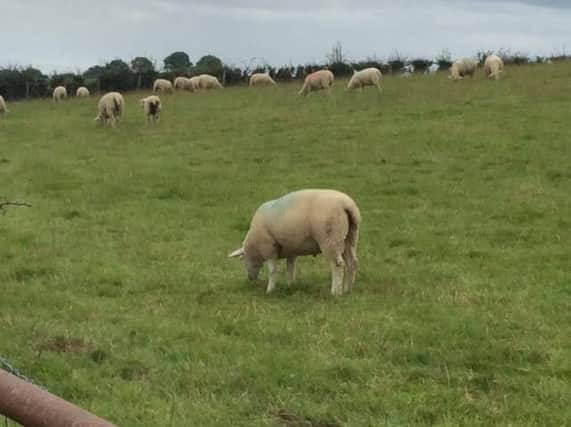Faecal egg counts indicate it is time to treat


Recent faecal egg counts (FEC) have highlighted a rise in the level of Trichostrongyle type eggs and some evidence of Nematodirus indicating it is now time to treat.
Aurelie Moralis, Veterinary Consultant with Zoetis points out that ideally this mid-season wormer should come from the group four or five categories (orange or purple).
Advertisement
Hide AdAdvertisement
Hide Ad“This involves substituting just one necessary mid-season lamb treatment with a high efficacy group four or five wormer to eliminate resistant worms that may have survived previous treatments and accumulated in the lambs, this is known as a Knockout drench. This can help achieve higher growth rates and quicker finish. For optimum financial impact, this treatment is best not left too late in the grazing season.
“If a dual-active wormer such as STARTECT® is used as a Knockout drench then resistant worms which may survive one active ingredient will likely be killed by the other. This makes higher efficacy possible than can be achieved by a single active alone, increasing its effect against resistant worms.”
Further information regarding STARTECT the Dual Active Knockout drench, including videos, testimonials and expert opinion can be found at the website; www.zoetis.co.uk/STARTECT.
Crosby is also coping with demand for breeding rams. His comprehensive breeding policy and detailed health and husbandry programme ensures a constantly improving performance and farmers are therefore keen to acquire these high performing rams. Three were being prepared for customers in the South of Ireland a few days ago.
Advertisement
Hide AdAdvertisement
Hide AdHe has developed a breeding strategy based on three breeds – Lleyn, Highlander and Primera with all recorded under the Sheep Ireland Five Star programme. The pure Lleyn ewe lambs are kept for breeding and pure Highlander rams are used on the Lleyn ewes for maternal stock with high growth rates. The pure Primera rams have been very successful as terminal sires with great growth rates, ease of management, efficiency and easy lambing. Rams from all three breeds are very much in demand.
Crosby highlights the benefits of regular sampling by FECs pointing out that you are not spending money unnecessarily on precautionary measures - sending a few dung samples to the lab is a lot cheaper than purchasing dosing products. In addition it is an early warning system which ensures that veterinary products, when necessary, are administered when they are most effective.
Aurelie Moralis points out that some farmers see cutbacks on veterinary medicines as a way of cutting costs in the present economic scenario.
She adds: “The average veterinary and medicine spent on a UK farm over all livestock is 3 pence in the pound, so trying to save 3p is not going to make a lot of difference in the long run.
Advertisement
Hide AdAdvertisement
Hide Ad“Cutting animal health care treatments when the challenge is high is going to be counterproductive. We all know that there is a big financial impact from parasitic disease and its financial impact on performance will outweigh the cost of treatment.”
Some comments from other farmers in GB who are participating in #Parasite Watch
From Wales – FEC above the treatment threshold with a high Nematodirus result. Also in Wales “Good results from weaned lambs that were not wormed but were monitored by FEC counts.”
A Somerset farmer reports that FEC’s are approaching the treatment threshold and he is going to re-test before worming, while a Dorset farmer is also reporting egg counts “creeping up”.
Farmers can find further comments from the 15 farmers on #Parasite Watch on Twitter (@sheep_farmers) or on Facebook (Sheep Farmers).